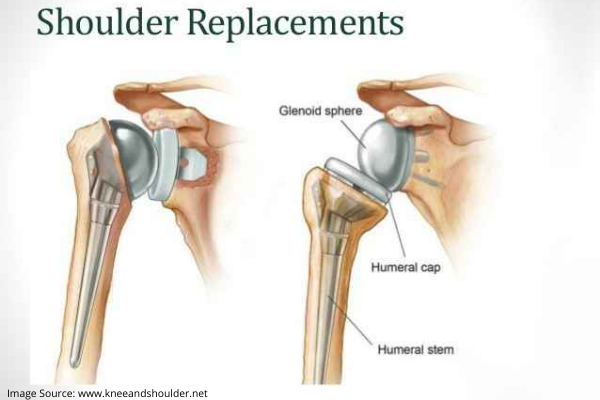

PREPARING FOR SHOULDER REPLACEMENT SURGERY

If you have been suffering from an unresolving shoulder pain for quite some time, your doctor might suggest a shoulder replacement surgery. This would seem like a very daunting undertaking as it would leave you disabled for at least six weeks and unable to take care of your own needs.
Though this procedure would restore you with a pain-free functional shoulder joint, you need to prepare yourself emotionally and physically for the ordeal ahead. Discuss your doubts openly with your doctor as well as read up all you can to prepare and strengthen your mind.
Shoulder replacement surgery (arthroplasty) is a major procedure that lasts 1-2 hours and involves cutting through skin, bones and tendons; it however restores the function back to the shoulder damaged by degenerative joint disease, osteoarthritis or rheumatoid arthritis, by removal of damaged tissue and bone and replacing it with a smooth metal ball and a high density polyethylene component for resurfacing the socket. The metal prosthesis is implanted directly into the humerus bone with only the ball head exposed.
After fixing on a date, your doctor will probably provide you with a list of preparations to make to ensure success of the surgery as well as the recovery process. You would be advised to make a few changes to your home environment, as you wouldn’t be allowed a full range of arm movements to prevent injury.
You could start by de-cluttering your home, getting rid of throw rugs and aligning your furniture towards the walls. Arrange your kitchen such that daily use pots and pans and electrical appliances are within reach. Stock up your freezer with pre-cooked food in small containers that wouldn’t be a burden on your shoulder. Shop for essentials for at least six weeks and keep them in easy-to-reach places. Buy small packs of everything to avoid heavy weight lifting. For those living alone, arrange for someone to assist you around the house and drive you for essential trips post-surgery.
Keep heating pads and ice packs ready for use once you get back from surgery. Stock up on washcloths and sponges as you wouldn’t be able to shower for a week or so.
Some medical preparations that the patient needs include making a list of all medications being taken, including supplements for the doctor’s information. A week or two before surgery the patient may be told to go off certain medications like steroids or NSAIDs. Tobacco and alcohol consumption would also have to be minimized as they could interfere with the healing process or anesthesia. If the patient has other underlying diseases like diabetes, heart disease, or other medical condition, they may need clearance from their specialists first.
The effectiveness of the surgery depends a great deal on the course of post-operative rehabilitation. You will need to follow your doctor’s and physiotherapist’s guidelines strictly for unimpeded recovery and avoid normal activities for six to eight weeks.














